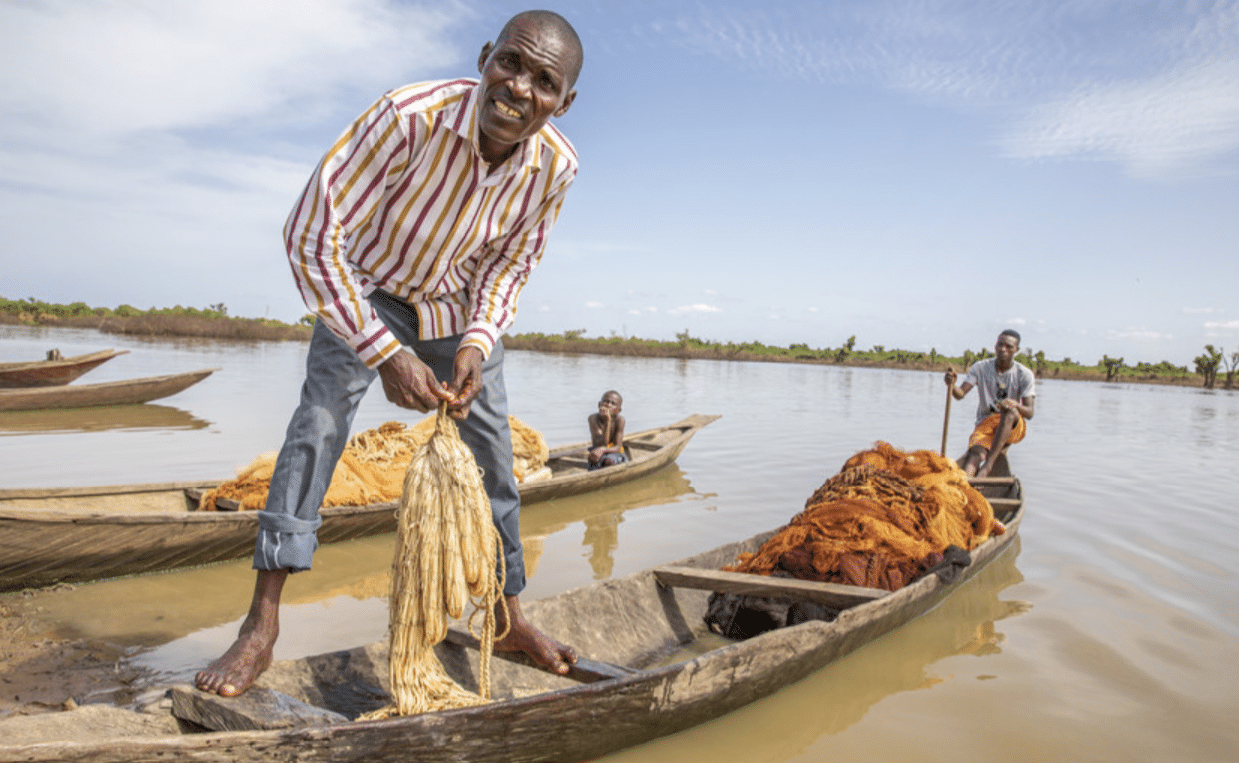The Nigerian water conflict has displaced hundreds of thousands of people and cost the Nigerian economy billions.
In Nigeria’s Middle Belt, decades-old tension between farmers and pastoralists, largely over competition for natural resources, has flared into violence. Population growth and climate change have made Nigerian water and land more scarce in recent years.
The conflict has displaced hundreds of thousands of people and cost the Nigerian economy billions. Last year, attacks between farmers and pastoralists were so deadly they killed more people than Boko Haram.
As a fisherman, Moses depends on the river to provide for his wife and 12 children. It’s how he has earned food and income for almost 40 years, taking to the water for several hours every day.
“I don’t earn enough money [now], so feeding my family has been difficult,” he explains.
But the water has been low and inconsistent for the better part of a decade, Moses says, and his fishing livelihood has become increasingly unreliable.
“I understand the unpredictability of my livelihood,” Moses says. “I think about [giving up] all the time.”

Across communities like his, families are being forced to survive with less, a change not only creating unprecedented challenges earning income and food, but also putting desperate families at odds with one another — and creating environments ripe for potential conflict.
In communities like Moses’s, where resources are stretched to the brink and resulting hostility is high, Mercy Corps is implementing peacebuilding work to help people adapt and stay safe in increasingly-volatile environments.
These projects include conflict-management trainings, community peace committees and dialogue sessions, in which opposing parties can learn from one another.
They offer community members an opportunity to build the skills, trust and community cohesion necessary to maintain peace and create stable lives against the backdrop of climate change.
In his village where, fishermen, pastoralists and farmers must all share the limited water the river provides, Moses has experienced a change.
He participated in a dialogue session and a training that taught community members how to recognise conflict and how it escalates, and how to peacefully work through it.
Moses says unity was once a hard concept for people in his community to believe in, but having an opportunity to interact with other groups, like in the dialogue session, can breed tolerance and reduce conflicts.
Since attending the conflict-management training, he has successfully mediated disagreements between others in his community.
“The training taught me an important thing,” he says. “It taught me the importance of peace.”
Even though the climate challenges in his community remain a persistent threat, that he and others are now empowered to overcome them, together. This is an important step toward thriving.
And Moses is optimistic about the future, but aware that climate change will continue to make his livelihood harder to maintain.
Mercy Corps provided us this story.